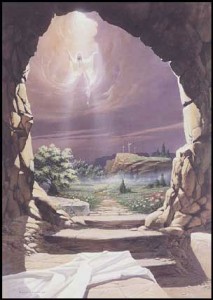“Set your mind on the things above, not on the things that are on earth.” (Colossians 3:2)
Paul repeats “the things above” verbatim from verse one. Now he connects it to one of his favorite verbs (“Set your mind”). Paul makes use of it in twenty-three of its twenty-six New Testament usages (ten of those in Philippians). It generally describes the realm of the mind: to think, to have an attitude, to form an opinion. Paul’s frequent use of the word underscores the high place he affords the Christian mind. The present tense imperative calls for continual, habitual action (“Keep thinking,” NET). We are to “seek” the things above (v.1) and “set” our thoughts upon them (v.2). “You must not only seek heaven; you must also think heaven” (Lightfoot, 207).
This is to be done rather than thinking about “the things that are on earth.” This stands as the polar opposite of “the things above” (vv.1, 2). This is the realm where “fleshly indulgence” (2:23) takes place. This is the place where the false teacher(s) centers his counsel and teaching as he prescribes “severe treatment of the body” (2:23). While the believer resides “on the earth,” his home—the center and source of his life—is from above. The believer has “been firmly rooted” and is now “being built up in” Christ (2:7). Jesus is the locus of the believer’s life and existence. The believer has died to the “elementary principles of the world” (2:8, 20). Indeed, the believer has died with Christ and is raised up with Him to a new life (2:13; 3:1). It is in Christ that the believer “has been made complete” (2:10). The ascetic, legalistic rules of the false teacher regarding diet, drink and days (2:16) are “a mere shadow of what is to come” whereas “the substance belongs to Christ” (2:17). The believer is one who is “holding fast to the head,” Christ Himself (2:19a).
The little phrase “the things that are on the earth” becomes quite significant for Paul. Christ has created all things “on earth” (2:16). God’s purpose is to sum up all things—including those “things upon the earth”—in Christ (Eph. 1:10). To this end God, through Christ, has reconciled to Himself all things “upon the earth” (Col. 1:20). Yet we are to put to death our members “which are on the earth” (3:5, NRSV). Part of how we carry this out is by not setting our minds upon these things (3:2).
Paul sets “the things above” in contrast to “the things that are on the earth.” In doing so he tells us that reality upon earth is defined by the reality of heaven, not the other way around. Spiritual truth defines tangible reality. We are on dangerous ground when we weigh spiritual matters by what appears to be the fact based on limited, earthly evidence. He who sees only the earthly sees only partial reality—missing the most vital pieces of evidence for interpreting the fuller reality.

